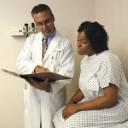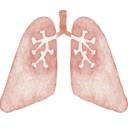-
Genetic Testing Gaps
Testing for hereditary mutations is increasingly recommended for people with cancer, but recommendations do not always translate into access to testing and appropriate counseling.
by Kate Yandell
-
Understanding How Radiation Causes Cancer
Researchers are investigating who is at greatest risk for radiation-induced cancers.
by Kate Yandell
-
Making Connections at the AACR Annual Meeting 2021
Attending a scientific conference as a patient advocate can be an exhausting, overwhelming and hugely rewarding experience.
by Bradley Jones
-
Building COVID-19 Vaccine Confidence
Experts discussed how the cancer community can share accurate information and increase confidence in COVID-19 vaccines, both among people with cancer and the general population.
by Kevin McLaughlin
-
Chemobrain: It’s Not Your Imagination
Scientists discussed the mechanisms of chemotherapy-related cognitive impairment at a session dedicated to symptom science at the AACR Annual Meeting 2021.
by Marci A. Landsmann
-
Coverage of the AACR Annual Meeting 2021
This year's AACR Annual Meeting features the latest advances in basic, translational and clinical cancer research. The more than 13,000 attendees at the virtual event represent more than 70 countries.
by Kevin McLaughlin
-
Searching the Blood for Signs of Altered Immunity
The immune systems of people with blood cancer respond differently to infection with the coronavirus than the immune systems of people without cancer or with solid tumors.
by Kate Yandell
-
Physicians Underestimate Severity of Radiation Side Effects
Breast cancer patients' symptoms after radiation therapy may go underrecognized, especially if these patients are Black or younger in age.
by Marci A. Landsmann
-
Drug Dependence After Breast Surgery
A study indicates that some breast cancer patients who receive mastectomy and reconstruction may be at risk of persistent drug use following surgery.
by Marcus A. Banks
-
Targeted Therapy for Early-Stage Lung Cancer?
A trial of the targeted therapy Tagrisso (osimertinib) for early-stage lung cancer finds that patients who take it go longer without having a cancer recurrence. Whether that should change clinical practice is under discussion.
by Ashley P. Taylor
Cancer Talk
Living With Your Loved One’s Prostate Cancer
Christine Ledbetter on the ways her husband’s prostate cancer affected their relationship and finding support as a caregiver.
by Christine Ledbetter
Continuing the ConversationThe AACR hosts a roundtable to ‘get real’ about cancer health disparities.
by Marci A. Landsmann
More Patients Participating in Cancer ResearchA higher proportion of cancer patients are enrolling in research studies than previously thought, but many patients lack the access needed to participate.
by Kyle Bagenstose
Immunotherapy Drug Tarlatamab Approved for Advanced Small Cell Lung CancerThe drug showed promise in treating small cell lung cancer that had progressed during or after chemotherapy.
by Laura Gesualdi-Gilmore














